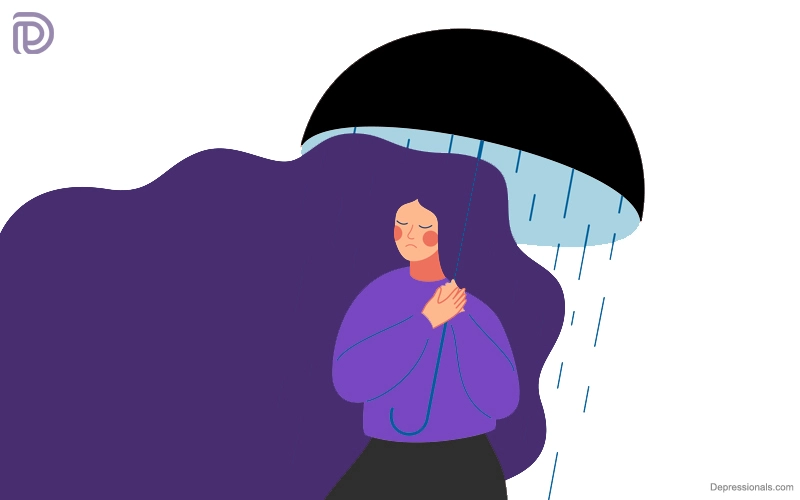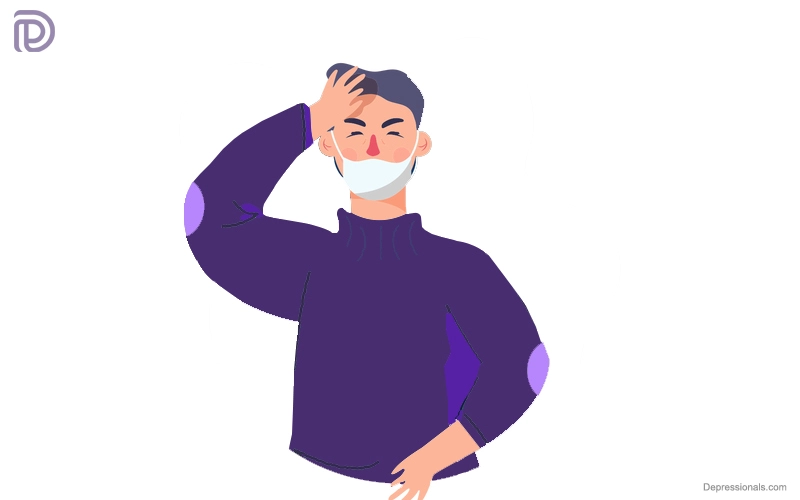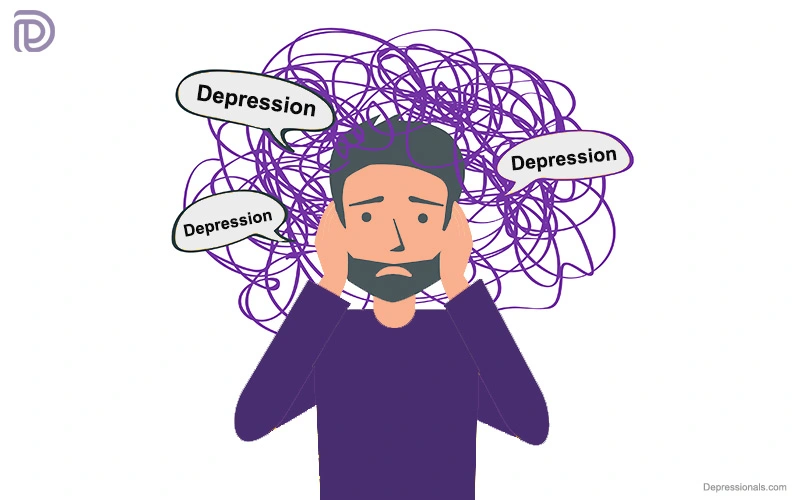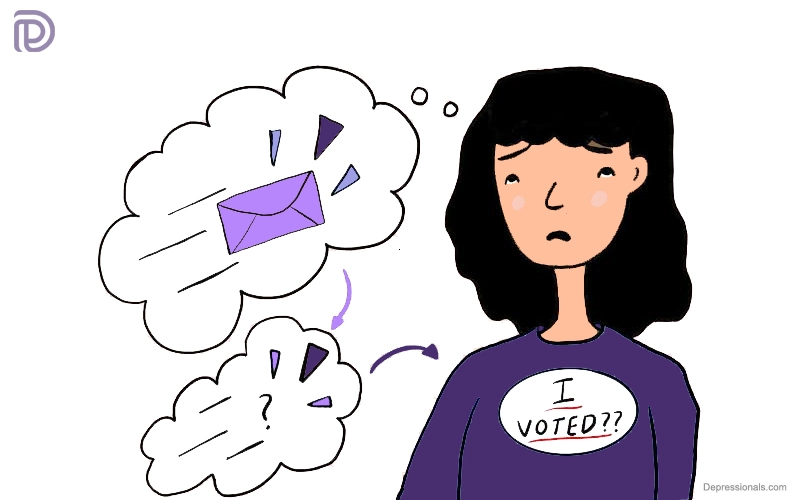Atypical depression subtype of dysthymic disorder or major depression involves a variety of symptoms including increased appetite or weight gain, excessive sleepiness, marked fatigue or weakness, moods that are strongly reliant on environmental factors and being extremely sensitive to rejection.
What is atypical depression?
Atypical depression can be either a sign of major depression or dysthymia. When an individual has atypical depression, it is often first experienced in their teenage years.
There are at least five of these nine symptoms in someone suffering from classic major depression:
- An almost constant state of depression or sadness
- Inability to enjoy once pleasurable activities
- Changing weight (loss or gain of more than 5% within a month) or appetite
- Sleeping excessively or insomnia almost every day
- Someone who is running down or in a state of restlessness
- Fatigue or energy loss almost every day
- Nearly every day, one feels hopeless or worthless or excessively guilty
- Constantly having trouble concentrating or making decisions
- Anxiety about dying or suicide, a suicide plan or an attempt at suicide
Dysthymic disorder, now known in the psychiatric community as chronic major depression or “persistent depressive disorder”, adults with major depressive disorder have a depressed mood more than half the time for at least two years (children and adolescents for one year), in addition to at least two of the above-associated symptoms, but not all of the five symptoms characteristic of the illness.
It is very common to suffer from atypical depression, despite its name. A related subtype of depression, melancholic depression, is characterized by insomnia (rather than increased sleep), loss of appetite (rather than increased appetite), a relative lack of mood responsiveness to the environment, and abnormally reduced ability to feel pleasure.
Related: Situational Depression
Atypical depression symptoms
Symptoms of atypical depression features differ from person to person. The majority of individuals with this condition experience symptoms of MDD, however. There are several symptoms associated with these:
- Feelings of hopelessness or sadness that persist
- Irritability or anxiety
- Oversleeping and undersleeping
- Inability to enjoy activities that were once enjoyable
- Concentration, decision-making, and memory problems
- Fatigue or low energy
- Suicidal thoughts or talk
There may also be atypical depression symptoms, such as:
- Good news or positive events that lift or brighten a person’s mood
- Significant weight gain
- Increase in appetite
- Legs or arms feel heavy
- Body aches or headaches
- Overnight or daytime sleeping
- Criticism or rejection that is perceived as extremely negative
Recommended: Sleep Disorders
Atypical depression causes
Atypical depression is thought to be caused by dysfunctional brain circuits that regulate mood as well as brain circuits that allow one part of the brain to communicate with another. Signals are sent between nerve cells within these circuits via brain chemicals known as neurotransmitters.
Such chemicals include dopamine, serotonin and norepinephrine. It is believed that antidepressant medicines alter these chemicals and improve the operation of brain circuits related to mood.
Depression has several risk factors. These factors include:
- Depression in the family
- Significant losses, such as death, divorce or separation, may potentially trigger depression in individuals (instead of simply normal grief)
- Feelings of guilt related to interpersonal conflicts
- Abuse of any kind — physical, sexual or emotional
- People who are biologically vulnerable to depression who move, change jobs, lose their job, graduate, retire, or become socially isolated should avoid major life changes that can trigger mood disorders
- Almost any type of serious illness, including cancer, heart disease, stroke or HIV
- Alcoholism or substance abuse
Related: Loneliness and Depression
Atypical depression diagnosis
If you suspect you have MDD with atypical symptoms, schedule an appointment with your doctor. In addition to a physical exam, your doctor may order laboratory tests, like a complete blood count and thyroid function tests.
Your symptoms may be triggered by health problems that can be discovered through these tests. MDD can be relieved by treating an underlying illness.
A psychological evaluation may also be performed by your doctor to check for atypical MDD symptoms. You may be asked about:
- Symptoms
- Personal life
- Past experiences
- Current medications
- Personal or family history
When MDD has atypical features, your doctor may diagnose you as:
- The underlying cause of your symptoms is not a medical condition
- According to the Diagnostic and Statistical Manual of Mental Disorders (DSM-5), your symptoms match those listed in that manual
Read: Work Depression
Atypical depression treatment
MDD with atypical features can be treated differently. It is most common for treatment to include a combination of medications, talk therapy and lifestyle changes.
Medications
There are many types of antidepressants your doctor can prescribe, such as monoamine oxidase inhibitors (MAOIs) or selective serotonin reuptake inhibitors (SSRIs). Tricyclic antidepressants don’t typically work well on MDD patients with atypical manifestations.
A number of MAOIs and SSRIs have been shown to effectively treat symptoms of bipolar disorder. If the symptoms you are experiencing can’t be controlled with one medication, your doctor can prescribe more than one.
There is a possibility that taking an MAOI will require you to alter your diet. Some antidepressants, such as birth control pills and decongestants, interact with certain foods and medications.
When beginning a new medication, make sure you discuss potential side effects and any food or drug interactions with your doctor.
Related: How to Help Someone with Depression
Talk therapy
Talk therapy takes place regularly with a counselor or therapist. You can perform these tasks with this type of treatment:
- Express your feelings
- Recognize unhealthy thoughts
- Improve your problem-solving skills
Your outlook will improve and you will be able to cope better with your condition. Your therapist can also help you gain control over your life and obtain satisfaction by setting realistic goals.
Related: How to Deal with Teenage Depression
Home remedies and lifestyle
MDD with atypical characteristics can be treated with medication, therapy and lifestyle changes. Some of these include:
- Drinking and using drugs recreationally
- Maintain three workouts a week at a minimum
- Getting enough sleep
- Meditation and deep breathing exercises can help you relax
- St. John’s Wort and fish oil are two supplements that can help
Consult your physician before you begin taking supplements. There may be interactions between some natural remedies and certain medications for MDD.
Related: How to Overcome Depression
Side effects of treatment
Atypical depression can be treated with certain medications, some of which have side effects. It is possible to experience side effects such as:
- Nausea/diarrhea
- Loss of appetite
- Headaches
- Insomnia.
- Loss of sex drive
Your body usually adjusts to the medication as the side effects subside. Doctors can suggest different types of medication if the side effects do not diminish.
Complications
The symptoms of atypical depression can be as severe as those of other types of depression. Every aspect of your life can be affected by atypical depression, including your emotions, behavior, and health.
It is possible for atypical depression to be accompanied by:
- An increase in appetite leads to weight gain
- Rejection sensitivity can cause problems in personal and professional relationships
- Trouble coping leads to drug or alcohol use
- A mental health disorder such as anxiety may also be present
- Depression-related suicide
Living with atypical depression
The treatment for MDD with atypical symptoms includes talk therapy, medications and lifestyle changes. Symptoms can also be managed in other ways:
- Write in a journal every day.
- Plan and manage your time well.
- Take part in activities that reduce stress, such as yoga, tai chi, and meditation.
- Do not isolate yourself by isolating yourself from friends and family.
- Trust a friend you can rely on.
- Find out about depression support groups in your area by asking your doctor.
Check your nearest: Mental Help Resources






Thank you a lot for sharing this with all people you really understand what you are talking about! Bookmarked. Kindly additionally discuss with my website =). We can have a hyperlink exchange arrangement among us!
Hello! I just would like to give a huge thumbs up for the great info you have here on this post. I will be coming back to your blog for more soon.